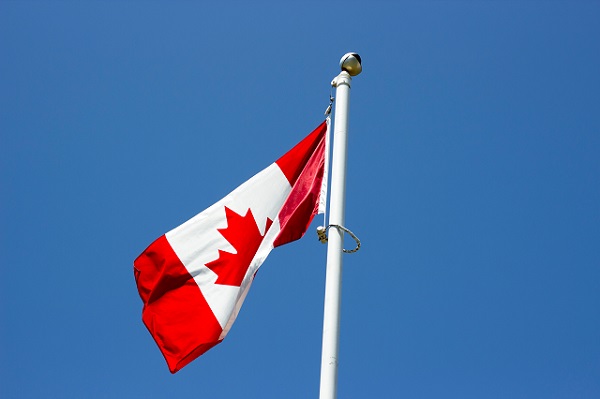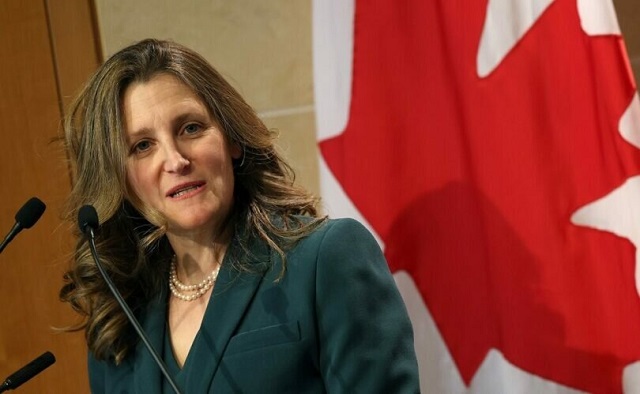National
Canadian journalists say Trudeau gov’t payouts are hurting mainstream media credibility
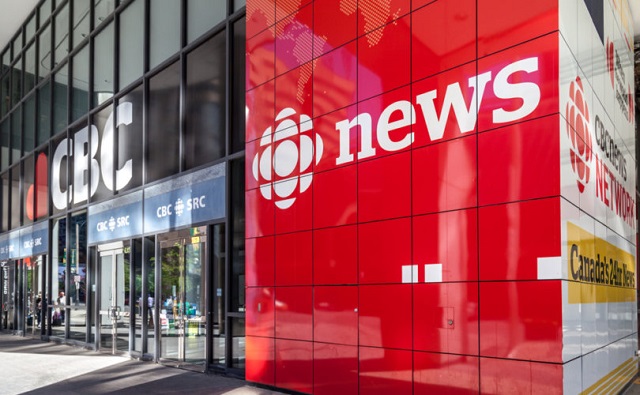
From LifeSiteNews
“Canadian media does need to be saved, that is very true,” said Henley. “My message is simple. The government cannot save us. We have to save ourselves.”
Legacy media journalists in Canada have pointed to government subsidies as one of the key reasons Canadians have lost trust in the industry.
On February 27, mainstream media journalists told the House of Commons heritage committee that ongoing media subsidies from Prime Minister Justin Trudeau’s Liberal government have only damaged newsrooms’ credibility in the eyes of Canadians, according to information obtained by Blacklock’s Reporter.
“Legacy and new media lobbying for government money and accepting it does little to enhance confidence in their independence or reliability,” former Conservative MP and 1988 chair of the Commons communications committee John Gormley testified.
“Does government funding pay for better journalism? Does it restore credibility and trust?” he questioned.
“I don’t necessarily accept the supposition Canadian media is in trouble because it is underfunded by government,” he responded. “The government has nothing to do with this.”
Similarly, Tara Henley, a Toronto author and host of the Lean Out podcast on current affairs, argued that the government subsidizes have led to a loss of integrity for mainstream media outlets.
“Any funding from the government that flows to media at this point would hinder our attempts to rebuild trust,” she said. “There is evidence to suggest subsidies have created an environment in which segments of the public believe media has been bought off.”
“Without trust we have no audience,” Henley stated. “Without an audience we have no revenue. Without revenue we have no path forward.”
“Canadian media does need to be saved, that is very true,” said Henley. “My message is simple. The government cannot save us. We have to save ourselves.”
The journalist’s comments come as mainstream media outlets continually request increased government funding as their readership and viewership flounders. Legacy media journalists are projected to have roughly half of their salaries paid by the Liberal government after the $100 million Google agreement and the subsidies outlined in the Fall Economic Statement.
Mainstream Canadian media had already received massive federal payouts, but they have nearly doubled after Trudeau announced increased subsidies for legacy media outlets ahead of the 2025 election. The subsidies are expected to cost taxpayers $129 million over the next five years.
Many have accused the mainstream media of becoming nothing more than a propaganda mouthpiece for the Liberal government as their financial futures are seen as dependent upon continued public funding.
Recent polling found that only one-third of Canadians consider mainstream media trustworthy and balanced.
Similarly, a recent study by Canada’s Public Health Agency revealed that less than a third of Canadians displayed “high trust” in the federal government, with “large media organizations” as well as celebrities getting even lower scores.
Large mainstream media outlets and “journalists” working for them scored a “high trust” rating of only 18%. That was followed by only 12% of people saying they trusted “ordinary people,” with celebrities receiving only an 8% “trust” rating.
In direct opposition to Trudeau’s stance, Conservative Party leader Pierre Poilievre has repeatedly announced that his government would not support state-funded media.
In April, Poilievre labeled the Canadian Broadcasting Corporation (CBC) a “biased propaganda arm of the Liberal Party and frankly negatively affects all media.”
“For example, Canadian Press is negatively affected by the fact that you have to report favorably on the CBC if you want to keep your number one, taxpayer-funded client happy,” he said.
“We need a neutral and free media, not a propaganda arm for the Liberal Party… When I am prime minister, we are going to have a free press where every day Canadians decide what they think rather than having Liberal propaganda jammed down their throats.”
Poilievre added that if he becomes prime minister he will cut “corporate welfare,” including money to the Canadian Broadcasting Corporation, which currently receives over a billion dollars a year in taxpayer funds.
Addictions
Why can’t we just say no?

From the Frontier Centre for Public Policy
Drug use and violence have become common place in hospitals. Drug-addicted patients openly smoke meth and fentanyl, and inject heroin. Dealers traffic illicit drugs. Nurses are harassed, forced to work amidst the toxic fumes from drugs and can’t confiscate weapons. In short, according to one nurse, “We’ve absolutely lost control.”
“Defining deviancy down” is a cultural philosophy that emerged in the United States during the 1990s.
It refers to society’s tendency to adjust its standards of deviancy “down,” so that behaviours which were once unacceptable become acceptable. Over time, this newly- acceptable behaviour can even become society’s norm.
Of course, the converse must also be true — society looks down on those who label social behaviours “wrong,” deeming them moralistic, judgemental or simply out of touch with the realities of modern life.
Thirty years later, this philosophy is entrenched in British Columbia politics and policies. The province has become a society that cannot say “no” to harmful or wrong behaviours related to drug use. It doesn’t matter if you view drug use as a medical issue, a law-and-order issue, or both – we have lost the ability to simply say “no” to harmful or wrong behaviour.
That much has become abundantly clear over the past two weeks as evidence mounts that BC’s experiment with decriminalization and safe supply of hard drugs is only making things worse.
A recently-leaked memo from BC’s Northern Health Authority shows the deleterious impact these measures have had on BC’s hospitals.
The memo instructs staff at the region’s hospitals to tolerate and not intervene with illegal drug use by patients. Apparently, staff should not be taking away any drugs or personal items like a knife or other weapons under four inches long. Staff cannot restrict visitors even if they are openly bringing illicit drugs into the hospital and conducting their drug transactions in the hallways.
The public was quite rightly outraged at the news and BC’s Health Minister Adrian Dix quickly attempted to contain the mess by saying that the memo was outdated and poorly worded.
But his facile excuses were quickly exposed by publication of the very clearly worded memo and by nurses from across the province who came forward to tell their stories of what is really happening in our hospitals.
The President of the BC Nurses Union, Adriane Gear, said the issue was “widespread” and “of significant magnitude.” She commented that the problems in hospitals spiked once the province decriminalized drugs. In a telling quote, she said, “Before there would be behaviours that just wouldn’t be tolerated, whereas now, because of decriminalization, it is being tolerated.”
Other nurses said the problem wasn’t limited to the Northern Health Authority. They came forward (both anonymously and openly) to say that drug use and violence have become common place in hospitals. Drug-addicted patients openly smoke meth and fentanyl, and inject heroin. Dealers traffic illicit drugs. Nurses are harassed, forced to work amidst the toxic fumes from drugs and can’t confiscate weapons. In short, according to one nurse, “We’ve absolutely lost control.”
People think that drug policies have no impact on those outside of drug circles – but what about those who have to share a room with a drug-smoking patient?
No wonder healthcare workers are demoralized and leaving in droves. Maybe it isn’t just related to the chaos of Covid.
The shibboleth of decriminalization faced further damage when Fiona Wilson, the deputy chief of Vancouver’s Police Department, testified before a federal Parliamentary committee to say that the policy has been a failure. There have been more negative impacts than positive, and no decreases in overdose deaths or the overdose rate. (If such data emerged from any other healthcare experiment, it would immediately be shut down).
Wison also confirmed that safe supply drugs are being re-directed to illegal markets and now account for 50% of safe supply drugs that are seized. Her words echoed those of BC’s nurses when she told the committee that the police, “have absolutely no authority to address the problem of drug use.”
Once Premier David Eby and Health Minister Adrian Dix stopped denying that drug use was occurring in hospitals, they continued their laissez-faire approach to illegal drugs with a plan to create “safe consumption sites” at hospitals. When that lacked public appeal, Mr. Dix said the province would establish a task force to study the issue.
What exactly needs to be studied?
The NDP government appears to be uninformed, at best, and dishonest, at worst. It has backed itself into a corner and is now taking frantic and even ludicrous steps to legitimize its experimental policy of decriminalization. The realities that show it is not working and is creating harm towards others and toward institutions that should be a haven for healing.
How quickly we have become a society that lacks the moral will – and the moral credibility – to just to say “no.”
Susan Martinuk is a Senior Fellow with the Frontier Centre for Public Policy and author of Patients at Risk: Exposing Canada’s Health-care Crisis.
COVID-19
Trudeau gov’t has paid out over $500k to employees denied COVID vaccine mandate exemptions
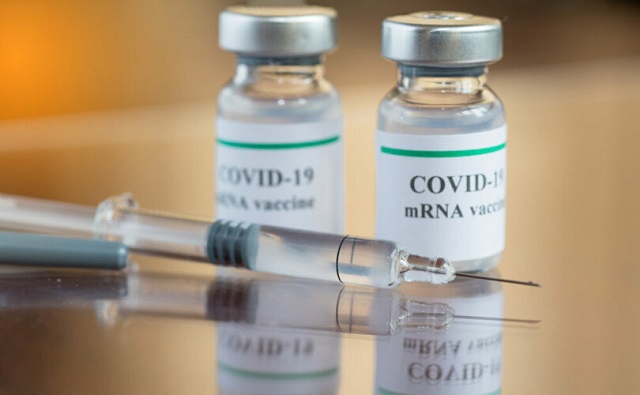
From LifeSiteNews
The Department of Health paid $177,991, the Department of Foreign affairs paid $88,223, the Correctional Service of Canada paid $65,694, and Statistics Canada paid $33,240
Federal managers have paid out over $500,000 in settlements to employees that were suspended under the Trudeau government’s COVID vaccine mandate.
According to information obtained April 24 by Blacklock’s Reporter, records have revealed that Canadian federal managers have paid a total of $509,746 in damages and compensation to employees who were denied vaccine mandate exemptions.
“What are the total expenditures on compensation, severance packages and settlements to employees who were impacted by the government’s requirement during the COVID-19 pandemic that federal public servants provide proof of vaccination?” Conservative MP Ted Falk had questioned.
According to the official numbers released by Blacklock’s, the Department of Health paid $177,991, the Department of Foreign affairs paid $88,223, the Correctional Service of Canada paid $65,694, and Statistics Canada paid $33,240.
The Department of National Defence further revealed that it compensated three employees with “damages under the Canadian Human Rights Act on grounds of discrimination based on religion.”
Beginning November 2021, Prime Minister Justin Trudeau’s government mandated that a total of 275,983 employees from the RCMP, military and main federal departments provide proof of vaccination as a condition of employment.
Those who failed to do so risked dismissal or suspension without pay. While there were provisions for medical and religious exemptions, these were rarely granted. According to internal information, at the time of the mandates 95 percent of employees had already received the COVID vaccine.
When the federal mandate was lifted in June 2022, 2,560 employees had been suspended without pay for refusing to show proof of vaccination.
Indeed, implementing the vaccine mandate for federal employees has proved costly for Canadian taxpayers as Trudeau budgeted $198 million to enforce the COVID jabs on federal employees.
Conservative MPs questioned why the cost of the mandate was so high and pressed for details as to what the funds were used for.
“Treasury Board officials told us it was for rapid testing purchases and distribution,” Conservative MP Kelly McCauley (Edmonton West) told the House of Commons in 2021.
“The Treasury Board website shows there are about 3,400 unvaccinated employees,” he added. “That works out to about $24,000 per employee for rapid testing.”
Additionally, the Trudeau government will likely have to pay out even more former employees due to ongoing lawsuits over the mandates.
In October, LifeSiteNews reported on how over 700 vaccine-free Canadians negatively affected by federal COVID jab dictates have banded together to file a multimillion-dollar class-action lawsuit against the Trudeau government.
Similarly, Canadian taxpayers have already paid over $6 million via Canada’s Vaccine Injury Program (VISP) to those injured by COVID injections, with some 2,000 claims remaining to be settled.
-

 Business2 days ago
Business2 days agoDon’t be fooled by high-speed rail
-

 Alberta2 days ago
Alberta2 days agoActivity-Based Hospital Funding in Alberta: Insights from Quebec and Australia
-

 Business2 days ago
Business2 days agoUN plastics plans are unscientific and unrealistic
-

 Business2 days ago
Business2 days agoTaxpayers criticize Trudeau and Ford for Honda deal
-
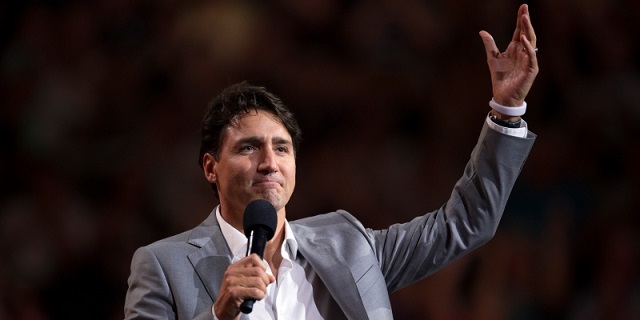
 Fraser Institute2 days ago
Fraser Institute2 days agoCanadians should decide what to do with their money—not politicians and bureaucrats
-

 Addictions2 days ago
Addictions2 days agoBritish Columbia should allow addicts to possess even more drugs, federal report suggests
-

 Alberta1 day ago
Alberta1 day agoPolitical parties will be part of municipal elections in Edmonton and Calgary pilot projects
-
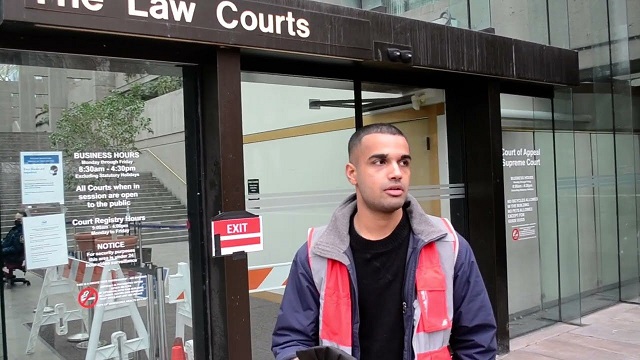
 Bruce Dowbiggin1 day ago
Bruce Dowbiggin1 day agoCome For The Graduate Studies, Stay For The Revolution

